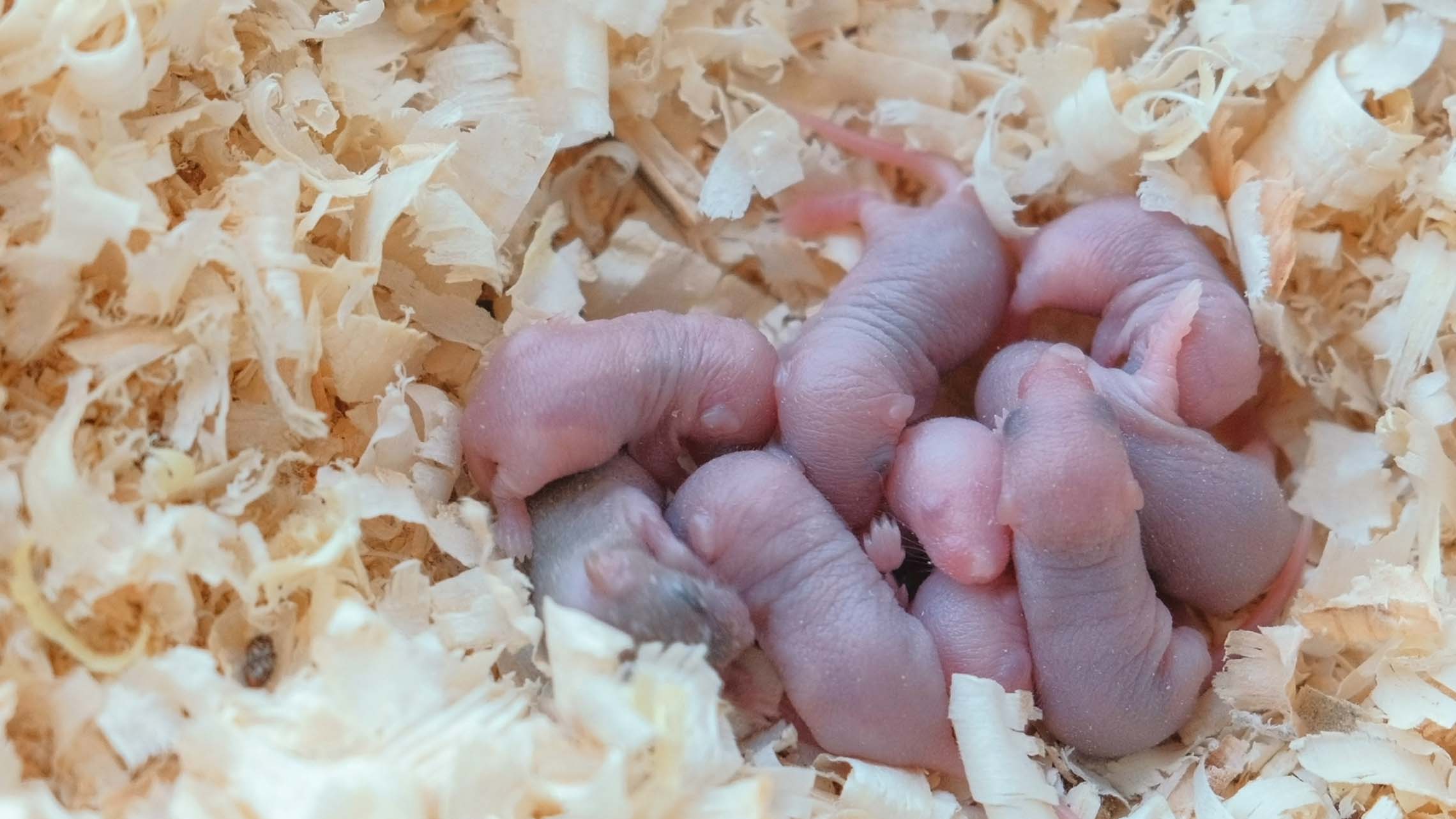
Managed Breeding Services
Managed Breeding Services (MBS) is a fee-for-service elective enterprise offered by DAR to the Emory research community. Through this, DAR maintains and manages colonies of research mice for the investigators. Please contact us with questions or to set up a breeding agreement: somdar-mbs@mscloud.emory.net
MBS aspires to facilitate research, allow laboratory technician resources greater focus on science, reduce excessive mouse production, and help to establish new strains or lines of mice for scientific use at Emory. The types of breeding activities supported include genetics/line establishment (i.e., backcrossing or inbreeding beginning with F1 and N1 founders), genetics maintenance (i.e., maintaining an established strain or mutant on defined back-ground), and production (i.e., producing subjects of defined background from established colonies for research).
Historically, MBS has bred mice, rats, hamsters, guinea pigs, and rabbits. Other species could possibly be accommodated upon request. Breeding colony founders are obtained from five possible sources: veterinary-approved commercial production colonies (e.g., Jax, CRL, HSD, and Taconic), the rodent quarantine programs administered by the DAR, from Emory's Mouse Transgenic and Gene Targeting Core(TMF), via internal transfer between investigators, or from other DAR managed facilities at Emory.
Services are defined and executed via a specific MBS Breeding Agreement between the lab and MBS/DAR.
The staff of MBS are skilled in the technical aspects of the breeding and care of rodents. While some breeding and genetics counseling is possible via this service, MBS does not maintain formal association with a qualified mouse geneticist. Investigators requiring sophisticated genetics advice or counseling are cautioned that this generally is not available via the MBS and are advised to make their own arrangements.
Rodents managed by MBS are generally housed in compliance with IACUC "Rodent Colony Management Policy" and as defined in the IACUC approved protocol. Rodents are housed in any housing modality made available by DAR based upon genotype, phenotype or lab request.
Currently the program is divided into three levels of care.
LEVEL I
Level I colonies are strains which are production colonies for experimental use or are being maintained so that the strain is not lost for future experimental use. Mice in this group do not require collecting tissue for genotyping. These strains require basic care and handling with only minor intervention. The breeders are monitored for health and production; decisions are made to replace or retire the breeders as each warrant. In production mode, the mice are weaned, data recorded, cage cards generated; and then the mice are transported to the PI's normal animal facility room for use in their research. In maintenance mode, weaned
mice are normally euthanized at weaning to reduce the census population except when needed to be held as replacement breeders.
DAR Managed Breeding Level 1 care includes:
- Selecting and setting up breeding pairs/trios
- Observing for pregnancies, and pregnant mice for problems before/during delivery
- Observing and evaluating newborn litters
- Monitoring and evaluating performance of breeding mice, replacing breeders as retired
- Recording data about the mice in appropriate locations
- Generating reports based on data recorded
- Arrange transport of mice from Breeding Colony to PI animal room for experimental use
- Euthanize mice which are not going to be used
- Communicating with PI and lab staff about the colony on an as-needed basis
- Making decisions for the progression of the mouse colonies based on the requirements of the PI
- Meeting with new or potential users of the DAR Managed Breeding Services
- Lab access to online colony management software
LEVEL II
Level II colonies are strains that require testing of each progeny for identification of genotype. Typical examples are strains that are bred heterozygous; strains that are newly created transgenics; lines that are being transferred from one background strain to another; test crossing to confirm parent homozygosity, or transgenic and knock-out (KO) lines being intercrossed to generate double transgenic/knockout lines for research. Level II animals require moderate care and handling. Level II can then be utilized to maintain or advance the strain. Strains may be reduced to Level I care when testing is no longer needed as in the realization of genetic goals.
Transgenic and KO strains can also be produced/recovered with the assistance of the Mouse Transgenic and Gene Targeting Core (TMF). It is the responsibility of the PI to communicate with the Transgenic Core to obtain/recover a strain.
Level II care includes all of Level I care plus:
- Identifying individual mice for sampling using IACUC approved methods
- Collecting tissue samples for genotyping using IACUC approved methods.
- MBS does NOT run the genotyping on the samples. The lab can handle the samples themselves or participate in the established service through TransnetYX.
- Identifying and recording genotype results and setting up new generations
- Making test crosses to verify genotype
- Maintain animals for back crossing
- Backcrossing other specialized needs as required and agreed upon by the PI
LEVEL III
Level III services include Levels I and II adding highly skilled technical services to meet specific, time-intensive breeding needs (e.g. plug check, timed breeding, background strain change, supportive strain/phenotype care such as cross-fostering), and/or research specific requests (e.g. addition of lab record keeping, participation in weekly lab meetings).
MBS Level Comparisons
